Testimonials
Those who have followed the course talk to us
Recent students, former students who may or may not have become teachers of the network, they tell us why they chose to learn at Agostini, or why they chose to join the network.
Interview by Batteur Magazine - N°295 October 2015
Martin Digard obtained the higher degree in 2015.
« I enrolled in 2014 because I really have confidence in this teaching. The formation is certainly a little old-fashioned. There is a lot of jazz, for example, whereas today, few drummers are interested in this style. But at Ago, the more we progress, the more we play jazz! More recent schools may seem more attractive to the new generations, but I must admit that I have not yet met anyone who has a quality school and does not come out of Agostini.We hear a lot of criticism about it, but the drumming and rhythmic training they provide is unique and unequalled to me to this day. I don't know of any other place where the knowledge of rhythmic solfeggio is pushed this far. Except in classical percussion.
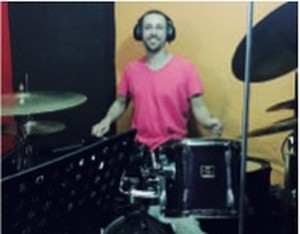
I consider myself lucky to have been able to take lessons with Jacques-François Juskowiak. Many of the tips he gave me really impressed me: tips on the job, how to save money, how to stay efficient when you're tired, things that are very useful at my age!
Next year, I will register at CESMA, perhaps to start an Agostini school. »
Fabien Rault obtained the Superior degree in 2015
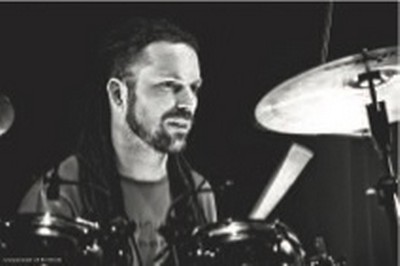
« I joined Agostini in 2012. For me, it is of sure value, one that supplies weapons for all situations, one that allows you to understand the roots of a very complex instrument. I think that at the end of the Superior course, if you have worked well enough, you are a complete drummer and ready to go and seal the deal. In this school, I have acquired a great ease in reading, a great ease in playing. Maître Jusko gives many tips and tricks to understand the instrument. Bernard Basso, Juskowiak Jr., Christophe Desmates and Frank Filosa, with whom I have also taken courses, are people who have mastered field experience, pedagogy, sympathy and rigour. Some people do not hesitate to bust your ass to get you moving forward, and I like it. But we're not on the same level as Whiplash, I can assure you.
If it is compatible with my family life, I would really like to pass the Excellence next year, and also the CESMA. It is a widely recognized diploma in municipal and associative structures, and in many conservatories. »
Thomas DiCaro obtained the Excellence degree in 2012
« I started playing drums with my father, then with Dominique Boursault, then I decided to go directly to see what was happening in the Agostini schools to obtain the Superior and Excellence. I also have the DAE. I've been doing this job for about 15 years,
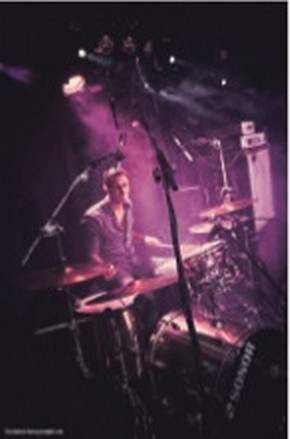
I give classes, I play concerts. What was very interesting with the four teachers I had was that they understood that they had someone who already knew how to play, and that they made me develop my qualities, but also dealt with my defects. These are people who can tell you: the way you play this rhythm is a little weird, a little wobbly, but develop it, because that's how we'll recognize you! The Agostini training was also very useful to me in developing my pedagogy. I use its methods more and more. Overall, although they may seem a little off-putting in terms of layout, they are still as effective as ever.
I think I'll try CESMA. Even if I don't get the diploma, I will have made progress in pedagogy, I will have learned to use the methods to the best of my ability, because a beginner cannot do it alone. And this year I am launching my school, the Ecole de Musique du Cherche-Midi, in Paris, which teaches several instruments in addition to drums. »
Stéphane Glory, teacher at the Nantes school
« I had the chance to meet people at Agostini who, through their pedagogical honesty, allowed me to make the drums my profession. Thanks to them, I can play in a big band or jazz trio, play blues, variety, pop, sessions with or without reading.... And that's what I'm trying to convey in turn. We often talk about THE Agostini method, but for me, its consists of methods to achieve a common goal, which varies from school to school. We give a general knowledge of drums, whatever the student, from the kid who dreams of becoming a professional drummer to the 50-year-old accountant who plays for his own pleasure on the weekend.
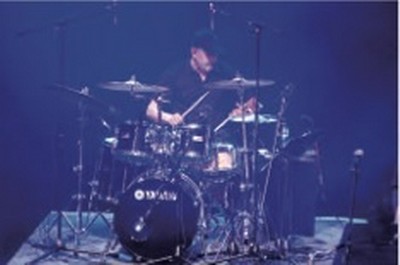 We invest in all areas of expertise. And if a solution does not work to achieve the goal, we have several others available, since the method includes about thirty volumes. Some content is no longer usable, but it must be placed in the context of the time it was written. The rhythms really sound like the 1970s and are therefore becoming fashionable again, but the pages of scales, rudiments, drum parts are timeless. For me, this set constitutes a dictionary, in which we must go and pick words according to our needs, our level, the objective to be achieved. Besides, this is the case with other methods that I use. If you work with John Riley page by page, you will burn out. If we work on Stick Control as it is written, it is useless, musically speaking. It is necessary to apply on toms, cymbals.... Of course, there are gaps in the method, since Dante died in the 1980s, and the game has evolved since then. On the other hand, there are all the tools for what we need work today. »
We invest in all areas of expertise. And if a solution does not work to achieve the goal, we have several others available, since the method includes about thirty volumes. Some content is no longer usable, but it must be placed in the context of the time it was written. The rhythms really sound like the 1970s and are therefore becoming fashionable again, but the pages of scales, rudiments, drum parts are timeless. For me, this set constitutes a dictionary, in which we must go and pick words according to our needs, our level, the objective to be achieved. Besides, this is the case with other methods that I use. If you work with John Riley page by page, you will burn out. If we work on Stick Control as it is written, it is useless, musically speaking. It is necessary to apply on toms, cymbals.... Of course, there are gaps in the method, since Dante died in the 1980s, and the game has evolved since then. On the other hand, there are all the tools for what we need work today. »Laurent Duclouet, teacher at the Dusseldorf school from 1990 to 2010, in Marseille since 2011
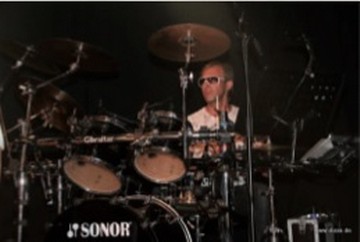 « We have annual meetings within the network, and permanent contacts with Paris, but there is a lot of freedom. There is a real pedagogical, moral and human mutual aid, which means that we really don't feel alone. Concerning the methods, one cannot find everything, that's obvious. To complete them, I will first look for musical suplements. As soon as a rhythm is established, it must be played along to music. I also organize, with musician friends and teachers, mini workshops during which students get to play with other musicians, teachers or students, but also to practice sight-reading, to read and play without being recorded on top, to develop rhythmic memory... When I need to dig into a specific style, I look for specialized methods: for Latin, for example, Funkifying the clave, by Lincoln Goines and Robby Ameen. For metal, my drum sets are equipped with double pedals, I work on the scales, and other specific exercises that I have set up in the style of the scales. Once students know how to do a number of things with their hands and feet, it is up to them to develop their personality in the field they are interested in. They have the means to do so. »
« We have annual meetings within the network, and permanent contacts with Paris, but there is a lot of freedom. There is a real pedagogical, moral and human mutual aid, which means that we really don't feel alone. Concerning the methods, one cannot find everything, that's obvious. To complete them, I will first look for musical suplements. As soon as a rhythm is established, it must be played along to music. I also organize, with musician friends and teachers, mini workshops during which students get to play with other musicians, teachers or students, but also to practice sight-reading, to read and play without being recorded on top, to develop rhythmic memory... When I need to dig into a specific style, I look for specialized methods: for Latin, for example, Funkifying the clave, by Lincoln Goines and Robby Ameen. For metal, my drum sets are equipped with double pedals, I work on the scales, and other specific exercises that I have set up in the style of the scales. Once students know how to do a number of things with their hands and feet, it is up to them to develop their personality in the field they are interested in. They have the means to do so. »Franck Filosa, teacher at the Paris school
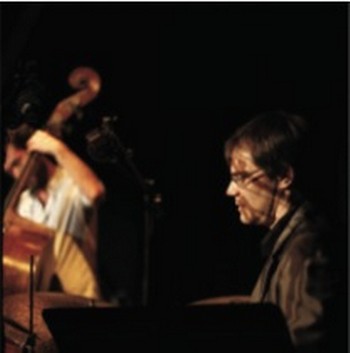 « I feel very comfortable in this network, there is a lot of discussion, about the students and the pedagogical content. If one of us finds a new system to work on independence, he shares it with his colleagues. It is obvious that from the time I was a student until I was trained as a teacher, I no longer used the methods in the same way. Only Volume 1 is more or less progressive. The rest is an encyclopaedia that you have to go through. All the drumming bases are there. Then, everyone is free to look anywhere else for what they need. This year I had the advanced students work on a Brian Blade solo and a Jeff Hamilton broom game. For high levels, I often pick in the John Riley method, and in Maria Martinez's Afro Cuban Coordination for Drum set, which contains quite hellish Cuban systems. Well, as I heard again this year, the rockers think we are too jazz, and the jazzers think we are too rock. But we're just open to all kinds of music. Each teacher obviously has a personal musical affinity, but students get to see all styles with them. It is important that they have different opinions. »
« I feel very comfortable in this network, there is a lot of discussion, about the students and the pedagogical content. If one of us finds a new system to work on independence, he shares it with his colleagues. It is obvious that from the time I was a student until I was trained as a teacher, I no longer used the methods in the same way. Only Volume 1 is more or less progressive. The rest is an encyclopaedia that you have to go through. All the drumming bases are there. Then, everyone is free to look anywhere else for what they need. This year I had the advanced students work on a Brian Blade solo and a Jeff Hamilton broom game. For high levels, I often pick in the John Riley method, and in Maria Martinez's Afro Cuban Coordination for Drum set, which contains quite hellish Cuban systems. Well, as I heard again this year, the rockers think we are too jazz, and the jazzers think we are too rock. But we're just open to all kinds of music. Each teacher obviously has a personal musical affinity, but students get to see all styles with them. It is important that they have different opinions. »3 questions to Stéphane Huchard
What did the courses at Agostini bring you?
When I decided to register, I was fifteen years old and totally self-taught. I felt technically stuck and wanted to devote myself fully to studying the instrument. In my opinion, this method is one of the most complete and has nothing to envy to the mythical American methods. It covers all the technical aspects of the instrument: snare drumming, independence, coordination... and has given me essential keys in terms of autonomy and stylistic diversity.
Did the school help you find work when you got out?
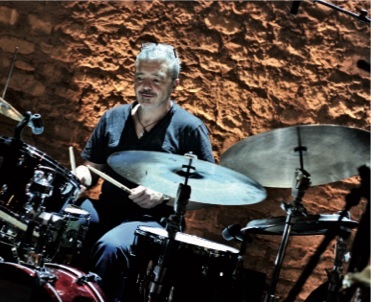 No, but that's not its job. A musician's willingness and determination must be strong enough to find a place to play. Personally, when I left the school with my Superior's prize, I was pumped up, in spite of the lack of experience, which I had to deal with later. I naturally went to places where we jammed and that's where I met musicians who gave me a chance. At present, diplomas are useless, only music is important!
No, but that's not its job. A musician's willingness and determination must be strong enough to find a place to play. Personally, when I left the school with my Superior's prize, I was pumped up, in spite of the lack of experience, which I had to deal with later. I naturally went to places where we jammed and that's where I met musicians who gave me a chance. At present, diplomas are useless, only music is important!Does it remain for you a reference, in the face of competition from other networks and schools?
Technically, yes, absolutely! I have not been aware of the evolution of the Agostini schools for a long time, and I do not know if "drumming self-sufficiency" is still as strong as ever. It is true that today, many schools and conservatories offer a wide range of courses, giving the opportunity to follow courses in harmony, arrangement, and above all to meet experienced professional musicians in master classes. This is undeniably a plus that can help a motivated student to develop and find their way. Personally, during the five years I devoted myself fully to the study of the instrument, I did not feel that I missed out on something, because my curiosity pushed me to listen to a lot of music, and I also attended many concerts. However, I would have been very happy to have the advice of musicians I admired at the time, it would probably have enriched me.
